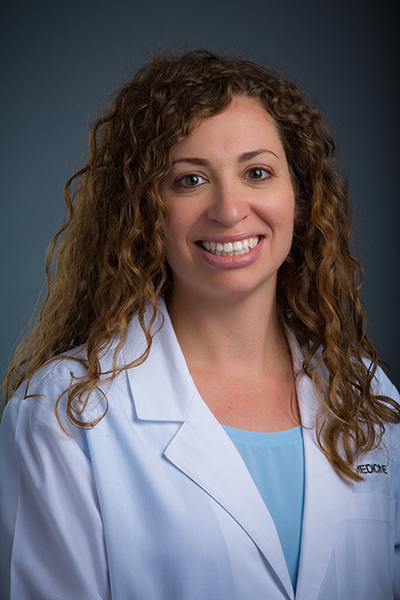The O’Neal Comprehensive Cancer Center at the University of Alabama at Birmingham is recruiting women in Alabama to join the WISDOM study, or Women Informed to Screen Depending On Measures of risk, which is an innovative national research study designed to test a personalized approach to breast cancer screening and prevention. Women between the ages of 30 and 74 who have not had breast cancer are eligible to participate in the study.
Despite continued advances in cancer care, approximately 42,000 women a year still die of breast cancer. About one in eight women will be diagnosed with invasive breast cancer in their lifetime, and the impact of the disease is felt beyond the patient, to loved ones, caregivers and health care providers.
“This is a unique opportunity for women to participate in a study that can help generations of women to come,” said Rachael Lancaster, M.D., principal investigator on the study and assistant professor in the UAB Division of Breast and Endocrine Surgery. “Each woman’s breast cancer risk varies, and this study takes multiple risk factors into consideration, including genetics, family history, lifestyle and personal history, to determine the best way to screen.”
Lancaster stresses that this study is not changing any existing guidelines for mammograms but is seeking to improve upon those guidelines.
The WISDOM study aims to determine which method is more effective: routine annual mammography or a personalized screening schedule that includes genetic testing for breast cancer risk. For example, in the personalized screening group, those considered at high risk for developing breast cancer will be recommended for additional breast MRI screening.
In addition, the study offers breast cancer risk reduction strategies to women identified as at high risk for breast cancer. For women at average risk, the study will also help determine whether it would be acceptable to undergo fewer mammograms than every year, thereby lowering overall costs to health care systems and potentially lessening anxiety from false positive results.
“We recommend women undergo annual mammograms starting at age 40. However, if a woman is interested in learning more about her personal risk of breast cancer and potentially screening for breast cancer based on this risk, this study is a good option,” Lancaster said.
“In fact, participants can express a preference as to which study group they desire to be enrolled in,” Lancaster said. “This means a woman can still participate in this study and still get her annual mammograms just as she has always done.”
By participating, women do not need to change where they get their mammogram or go to a study site. The study is conducted online and is available in both Spanish and English. Participation can mostly be done from home. A previous mammogram for women over 40 is allowed and encouraged prior to enrollment.
 Rachael Lancaster, M.D.The WISDOM study was launched by doctors at the University of California, San Francisco in 2016. The overall goal is to enroll 100,000 women. As one of the participating sites, the O’Neal Comprehensive Cancer Center at UAB hopes to enroll 5,000 participants over five years.
Rachael Lancaster, M.D.The WISDOM study was launched by doctors at the University of California, San Francisco in 2016. The overall goal is to enroll 100,000 women. As one of the participating sites, the O’Neal Comprehensive Cancer Center at UAB hopes to enroll 5,000 participants over five years.
A major goal of this study is to increase knowledge of screening by reaching women across diverse backgrounds, ethnicities and geographic locations. Risk assessment is particularly important among women of color, who are more at risk for lethal cancers. The hope is to address health disparities and improve breast cancer detection within medically underserved and minority populations.
“This nationwide study offers all women — regardless of where they live, where they receive health care or health insurance type — the opportunity to participate in this groundbreaking research and to receive screening recommendations and risk reduction strategies,” said Monica Baskin, Ph.D., professor in the UAB Division of Preventive Medicine and associate director for the O’Neal Comprehensive Cancer Center’s Office of Community Outreach and Engagement.
“Breast cancer is not a one-size-fits-all disease, and in that vein, breast cancer risk also varies by race and ethnicity. That is why we need racial and ethnic diversity in WISDOM, and we need the help of so many different women,” Baskin said.
To join WISDOM or to learn more, watch this video, visit www.thewisdomstudy.org/UAB or call 855-729-2844.










